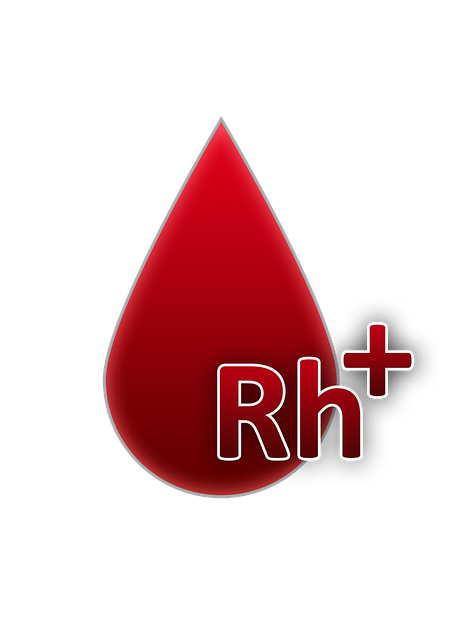Home blood tests are revolutionizing healthcare accessibility by allowing individuals to monitor health markers conveniently from home via a simple finger prick. These tests eliminate clinic wait times and costs, enabling regular health tracking and empowering informed lifestyle and treatment decisions based on accurate data. Popular tests include those for diabetes, cholesterol, thyroid function, and vitamin D deficiency. Selection of the right test kit requires understanding specific needs, with accuracy, ease of use, and reliability from reputable brands being key considerations. Understanding results is crucial for monitoring health; deviations from reference ranges may indicate underlying issues requiring professional consultation.
Staying on top of your health has never been easier with home blood tests. These at-home kits allow you to monitor various health conditions from the comfort of your own home, providing fast, accurate results without a trip to the lab. From checking cholesterol levels to managing diabetes, home blood tests offer convenience and peace of mind. Discover how these simple tools can empower you to take control of your well-being and choose the right kit for your needs.
- Understanding Home Blood Tests: What They Are and Their Benefits
- Common Health Conditions Monitored by Home Blood Tests
- Choosing the Right Home Blood Test Kit for Your Needs
- Interpreting Results and Next Steps After a Home Blood Test
Understanding Home Blood Tests: What They Are and Their Benefits
Home blood tests are becoming increasingly popular as people take a more active role in managing their health. These tests allow individuals to conveniently and privately monitor various health markers right from the comfort of their homes. By drawing a small sample of blood, often with the help of a simple finger prick, users can gain insights into their overall well-being without having to visit a clinic or laboratory.
One of the key benefits of home blood tests is accessibility. They eliminate barriers such as long wait times and expensive costs, making regular health monitoring more feasible for many. Additionally, these tests offer precision and convenience, ensuring that individuals can track changes in their health over time and make informed decisions regarding their lifestyle and treatment plans.
Common Health Conditions Monitored by Home Blood Tests
Home blood tests have revolutionized personal health monitoring, allowing individuals to track common health conditions right from the comfort of their homes. These tests offer a non-invasive way to assess various physiological markers, enabling early detection and management of several medical conditions. Diabetes, for instance, is one of the most commonly monitored conditions using at-home blood glucose meters. Regular testing helps individuals manage their blood sugar levels effectively and makes necessary lifestyle adjustments.
Other health parameters often checked through home blood tests include cholesterol levels (a key indicator of cardiovascular health), thyroid function (important for overall metabolic balance), and even vitamin D deficiency, which has become increasingly prevalent globally. These tests provide valuable insights into an individual’s overall well-being and can be particularly beneficial for those with chronic conditions or those seeking proactive health management.
Choosing the Right Home Blood Test Kit for Your Needs
Selecting a home blood test kit is a crucial step in taking control of your health. The right choice depends on understanding your specific needs and medical concerns. Different kits are designed for various purposes; some monitor common health markers like glucose, cholesterol, or vitamin D levels, while others cater to specialized testing for conditions such as thyroid disorders or anemia.
When considering a home blood test kit, look for accuracy, ease of use, and reliability. Reputable brands often provide detailed instructions, ensuring a stress-free experience. Additionally, checking for user reviews can offer insights into the kit’s effectiveness and comfort level. Choosing the appropriate test aligns with your healthcare goals, enabling you to make informed decisions about your well-being.
Interpreting Results and Next Steps After a Home Blood Test
After completing a home blood test, understanding your results is a crucial step in monitoring your health. Most tests provide a range for what’s considered normal, and your individual readings will be compared to this benchmark. If your values fall outside the reference range, it may indicate an underlying health issue or a need for further investigation. For instance, elevated cholesterol levels could signal cardiovascular risks, while unusual red blood cell counts might suggest anaemia or other blood disorders.
Once you’ve interpreted your results, the next step is to decide on the best course of action. If any abnormalities are detected, consult a healthcare professional who can offer personalized advice and recommendations. They may request additional tests for confirmation or suggest lifestyle changes, medications, or further monitoring to address any health concerns identified through your home blood test.
Home blood tests offer a convenient and accessible way to monitor your health, providing valuable insights into various conditions. By choosing the right kit and understanding the results, you can take charge of your well-being and make informed decisions about your health. These tests empower individuals to stay proactive in their healthcare journey, ensuring early detection and better management of potential issues.
